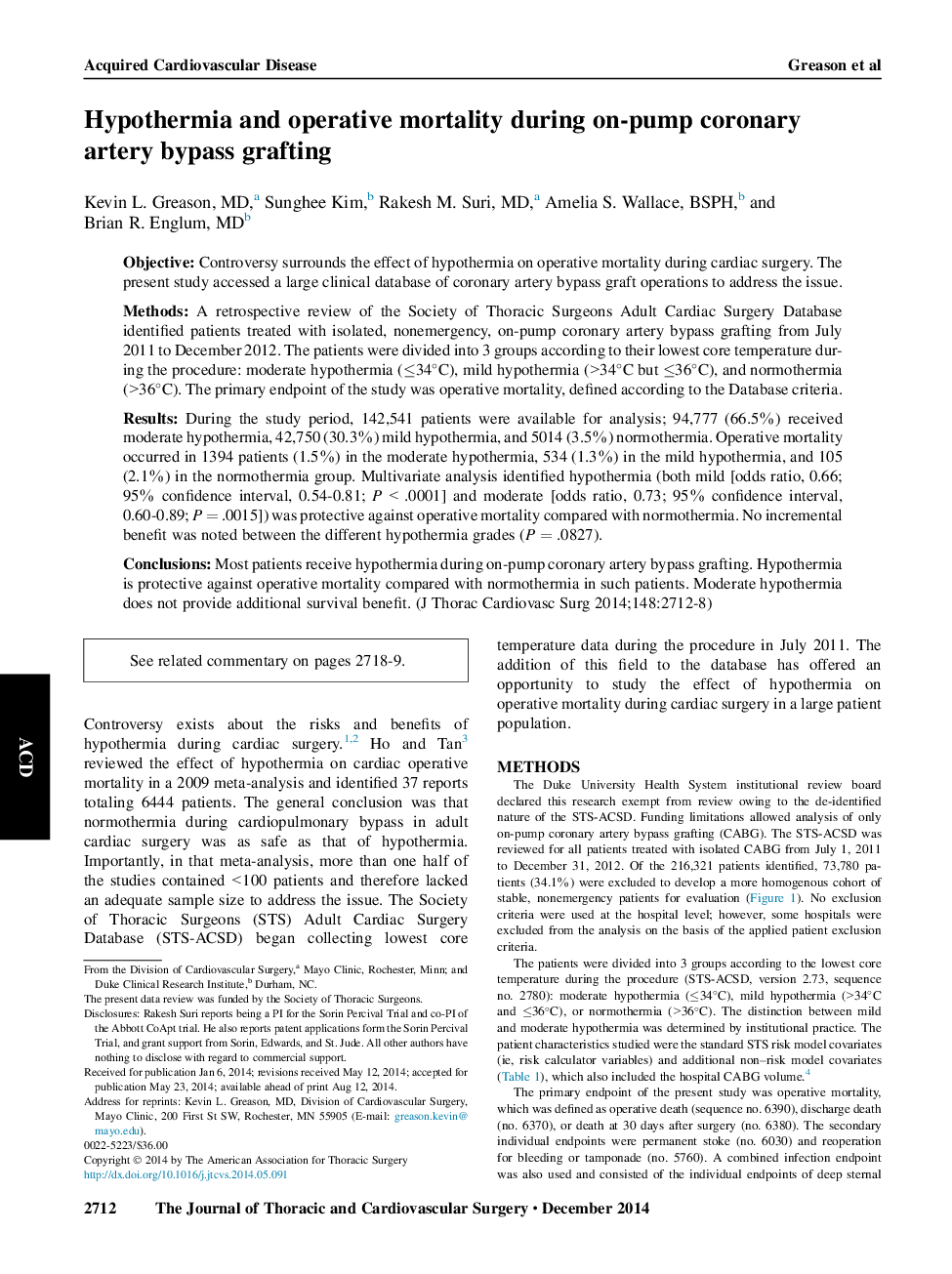| Article ID | Journal | Published Year | Pages | File Type |
|---|---|---|---|---|
| 5989785 | The Journal of Thoracic and Cardiovascular Surgery | 2014 | 7 Pages |
ObjectiveControversy surrounds the effect of hypothermia on operative mortality during cardiac surgery. The present study accessed a large clinical database of coronary artery bypass graft operations to address the issue.MethodsA retrospective review of the Society of Thoracic Surgeons Adult Cardiac Surgery Database identified patients treated with isolated, nonemergency, on-pump coronary artery bypass grafting from July 2011 to December 2012. The patients were divided into 3 groups according to their lowest core temperature during the procedure: moderate hypothermia (â¤34°C), mild hypothermia (>34°C but â¤36°C), and normothermia (>36°C). The primary endpoint of the study was operative mortality, defined according to the Database criteria.ResultsDuring the study period, 142,541 patients were available for analysis; 94,777 (66.5%) received moderate hypothermia, 42,750 (30.3%) mild hypothermia, and 5014 (3.5%) normothermia. Operative mortality occurred in 1394 patients (1.5%) in the moderate hypothermia, 534 (1.3%) in the mild hypothermia, and 105 (2.1%) in the normothermia group. Multivariate analysis identified hypothermia (both mild [odds ratio, 0.66; 95% confidence interval, 0.54-0.81; P < .0001] and moderate [odds ratio, 0.73; 95% confidence interval, 0.60-0.89; P = .0015]) was protective against operative mortality compared with normothermia. No incremental benefit was noted between the different hypothermia grades (P = .0827).ConclusionsMost patients receive hypothermia during on-pump coronary artery bypass grafting. Hypothermia is protective against operative mortality compared with normothermia in such patients. Moderate hypothermia does not provide additional survival benefit.
